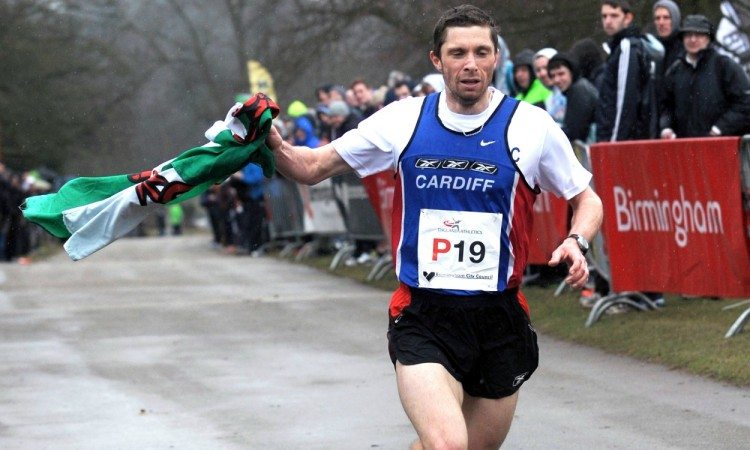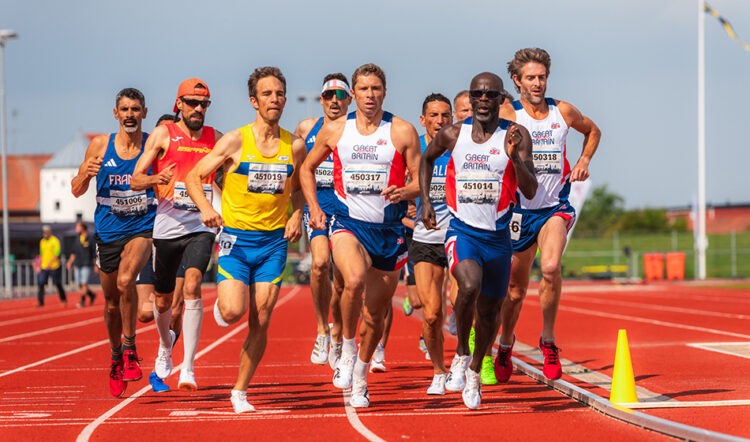Former world 1500m finalist still likes to pull on his racing spikes when he isn’t leading training sessions, lecturing, event organising, announcing or commentating
At the peak of his track career James Thie was a world, European and Commonwealth 1500m finalist. Now a senior lecturer in sport management and performance at Cardiff Metropolitan University, as well as head coach for Coopah, he is a multiple masters world champion and coach to a successful group of athletes that includes current and alumni students from both Cardiff Met and Cardiff University.
In addition to his core training group, Thie also hosts a midweek ‘run club’ – an open track night for runners of all abilities within the local community – and is a respected event organiser, announcer and commentator.
How did you get into coaching and who did you learn from?
I was lucky to have some amazing school and club experiences through various coaches when I was developing, but I was fairly unique in that for most of my adult competitive career I was self-coached.
Mark Rowland coached me for around 18 months in 2001 and I learned a huge amount in that time. I quickly realised that there was no easy route to success, no magic wand.
I started my own coaching journey in 2008 while I was still competing [as a senior athlete]. The Scottish athlete David Bishop was looking to improve his 1500m time and he asked me if I could help him run 3:45 to get a scholarship to the US. I’d never coached anyone other than myself, but I remember thinking: “Let’s just do what I’ve been doing and tweak it”. It worked because he hit the time and got the scholarship. He was my first charge and it was nice because it went full circle – when he returned to the UK I coached him to the Commonwealth Games in Glasgow in 2014.

James Thie (Mark Shearman)
I began looking after university students at Cardiff Met around the same time as working with David. I ended up coaching athletes who other people wouldn’t coach, or those who didn’t have coaches. I felt so fortunate to have those athletes because, although they didn’t realise it, I was learning through them. Every coach has to start somewhere, and by coaching someone. It’s one of those things; you only ever learn through practice, you learn through people and actually quite often you only learn through mistakes.
At the beginning I had currency as being an athlete so people were coming to me because of that. Although I’ve never stopped being…
CLICK HERE to Read the Full Original Article at AW…

